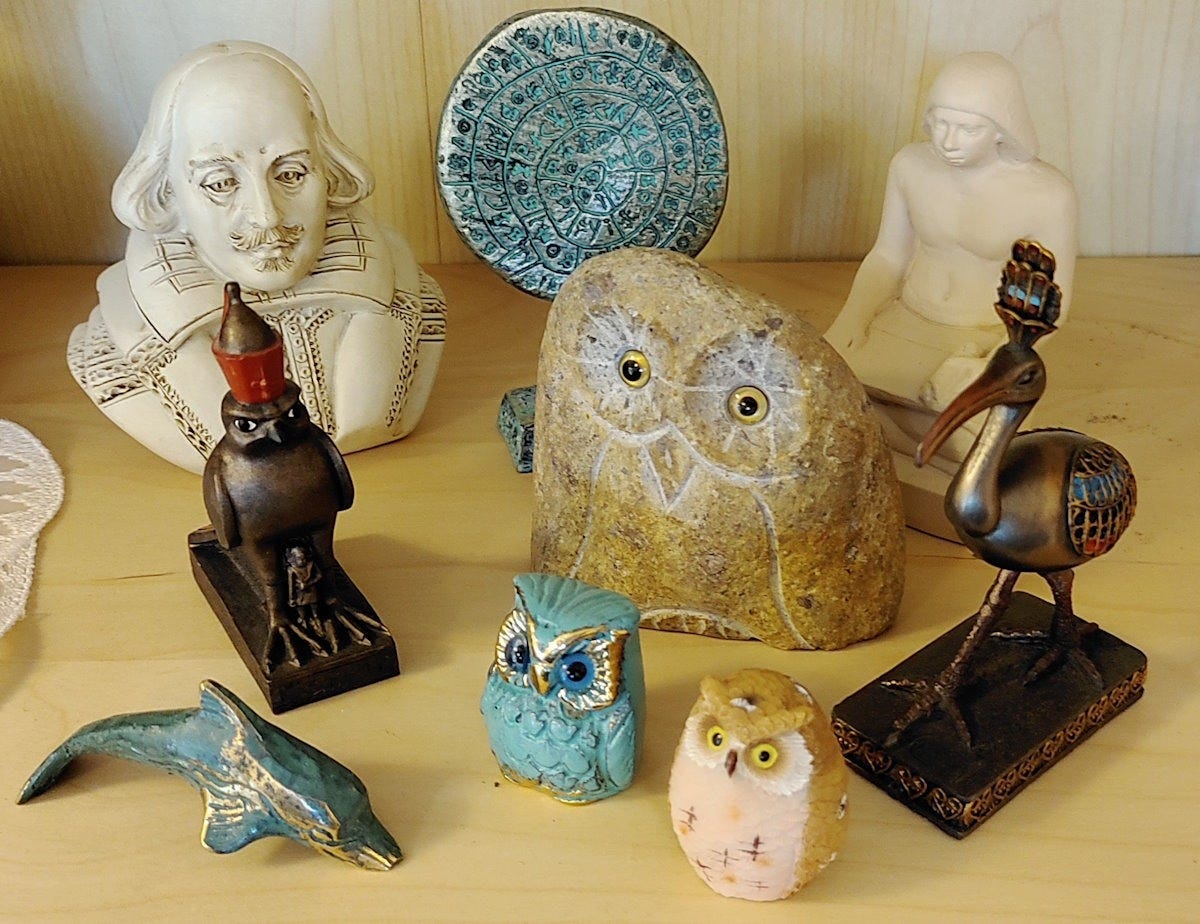The nature of inspiration, part 1
Flavors of inspiration and the nature of motivational inspiration
(If you like this post, bless the Algorithm Angels, the Digital Devas, or whatever you’d like to call them by selecting the “heart” icon ❤️ even if you’re not a subscriber. It helps!)
The two posts, Simplicity vs. sophistication in mystical fiction part 1 and part 2, looked at the “simple” part of the phrase, “simple devotional stories that inspire people to seek God.” This is the phrase that launched this whole quest of Deus in Fabula to understand mystical realism in fiction.
The next step is to explore and better understand what it means for stories to “inspire people to” some kind of action, generally, which then leads into the matter of inspiring people “to seek God,” specifically. In both cases, we’re really talking about how written words might not only engage readers emotionally about the lives of fictional characters, but how words might touch readers’ hearts in such a way that they begin to think differently about their own lives.
If you think for a moment about some past experiences or events that you described or would describe as “inspiring,” you can quickly see that we use that same term to describe what are somewhat distinct experiences. This series begins here, then, by differentiating these flavors of inspiration as they appear to me. If you have any thoughts or insights about them, please share in the comments!
Emotional and inpletional inspiration
The evening before this post first went live, Freddie Freeman of the Los Angeles Dodgers hit a walk-off grand-slam home run in the bottom of the 10th inning to erase a 3-2 deficit and win the Game 1 of the 2024 World Series against the New York Yankees. In the highlight video, you can see the Dodgers fans going bonkers—hooting and hollering, jumping up and down, and enjoying serious the rush of endorphins.
Such is emotional inspiration. It’s how we respond to most performances that we attend, from sporting events, concerts, plays, and movies, to attractions like museums, historical sites, and rides at Disneyland and other amusement parks. The same can also be said about many ostensibly religious and spiritual events that try to evoke emotionally powerful experiences through entertainment and spectacle more so than helping people connect to God in the silence of their own souls.1 We might also feel such inspiration from viewing what we might call natural performances, such as a grand waterfall, a towering redwood tree, a colorful sunset, or, as many in the United States have done in recent years, a total solar eclipse.
When the inspiration is of an emotional nature, we enjoy it in the moment and perhaps savor the experience for a little while afterwards, but soon it all becomes just a pleasant (hopefully) memory. I imagine that the elation of the Dodgers’ comeback started to wear off for many fans before they even left the stadium and certainly for many more when they sat in traffic trying to get home.
Emotional inspiration, though intense, is usually short-lived,2 which is, I think, the exact reason why many attractions force you to exit through gifts shops that offer convenient means to capture the fleeting joy of the moment in tangible symbols, aka suitably representative merchandise.

Keep reading with a 7-day free trial
Subscribe to Deus in Fabula to keep reading this post and get 7 days of free access to the full post archives.


